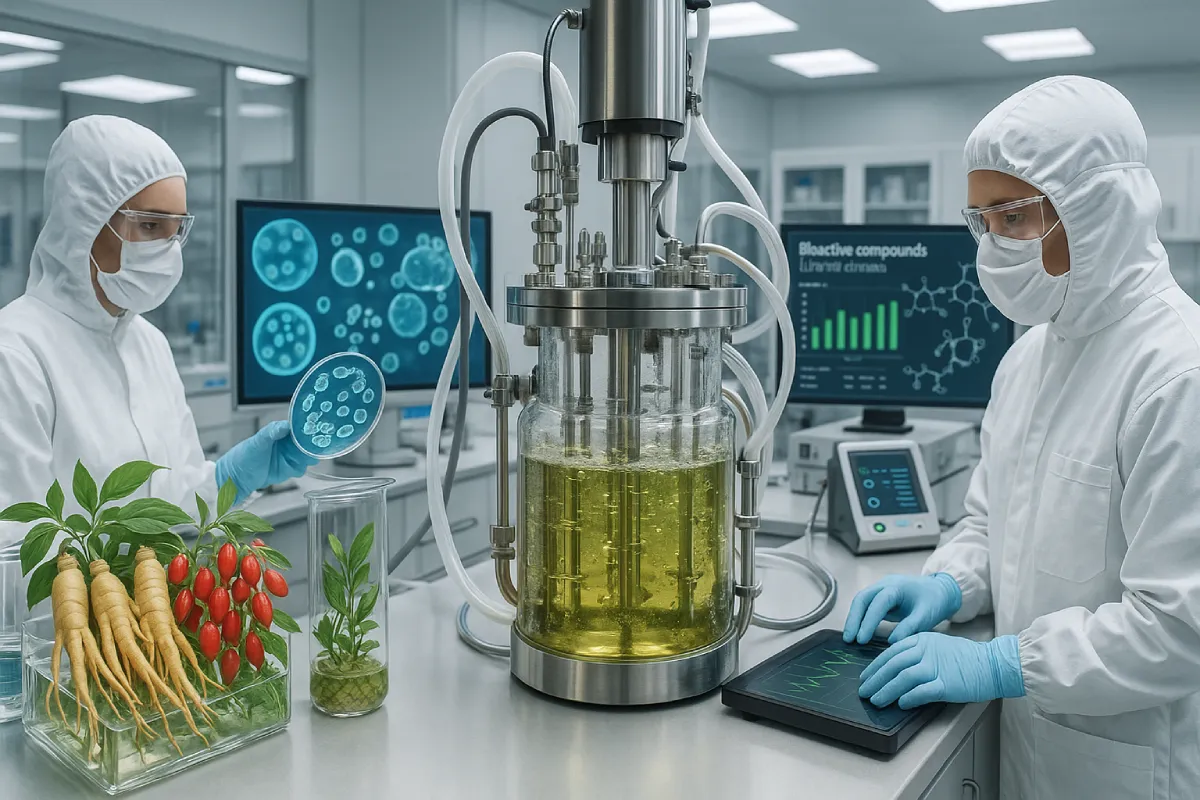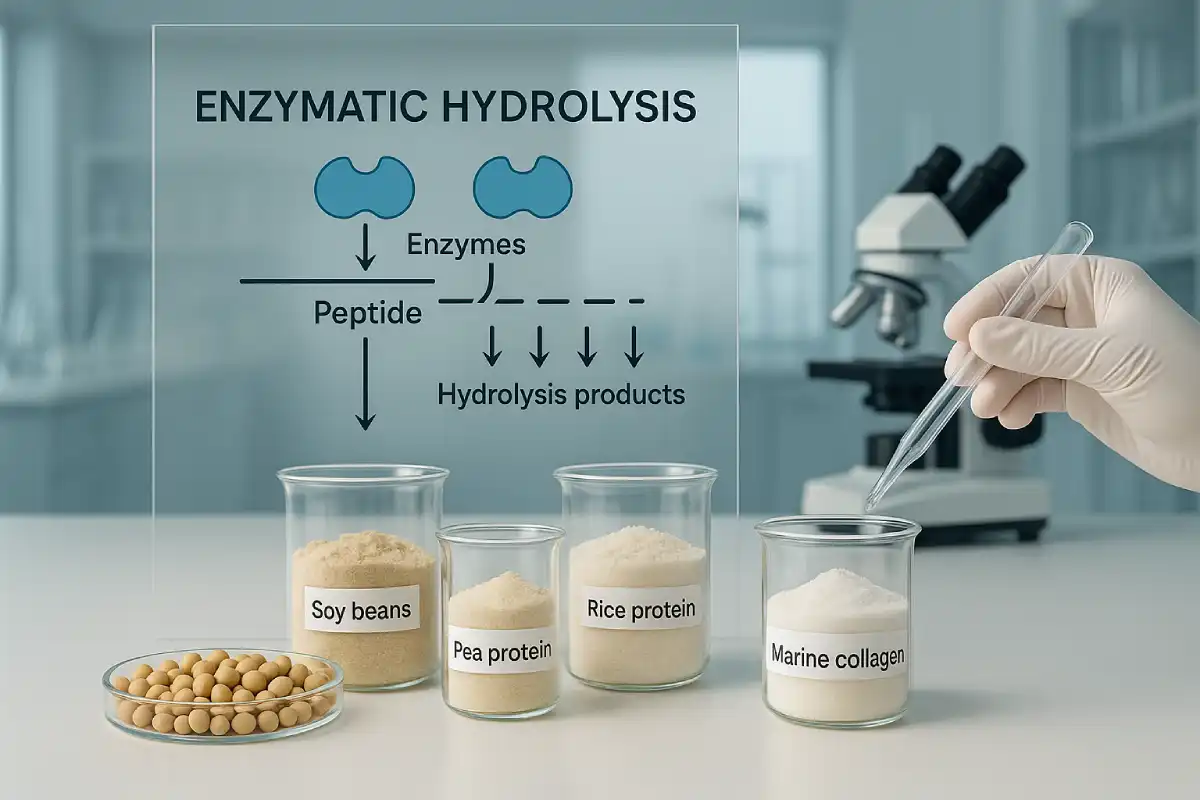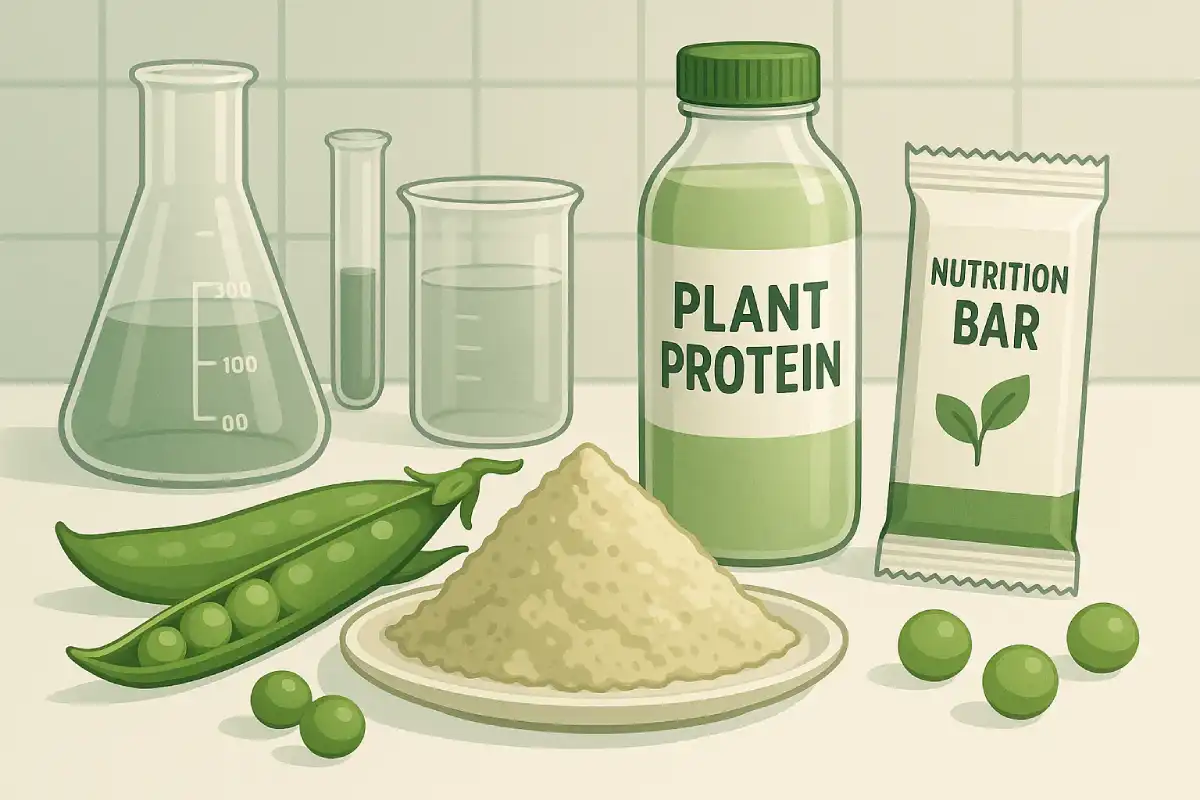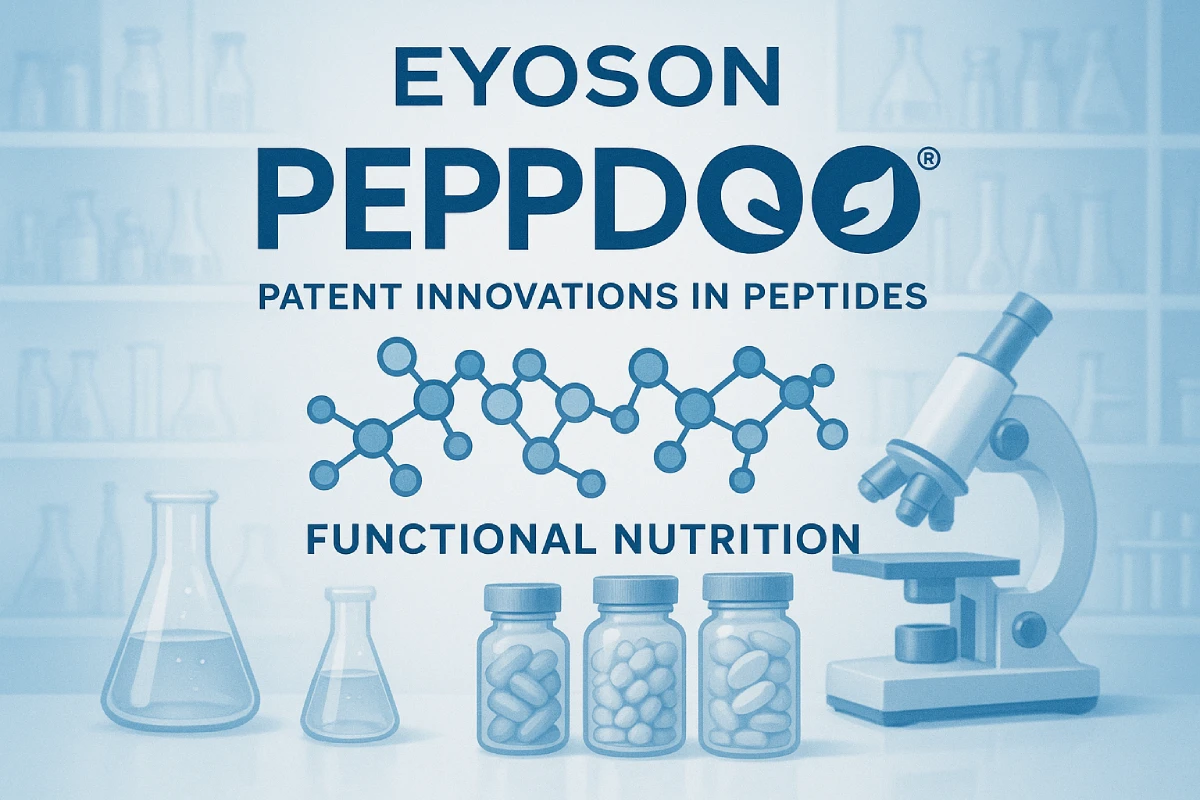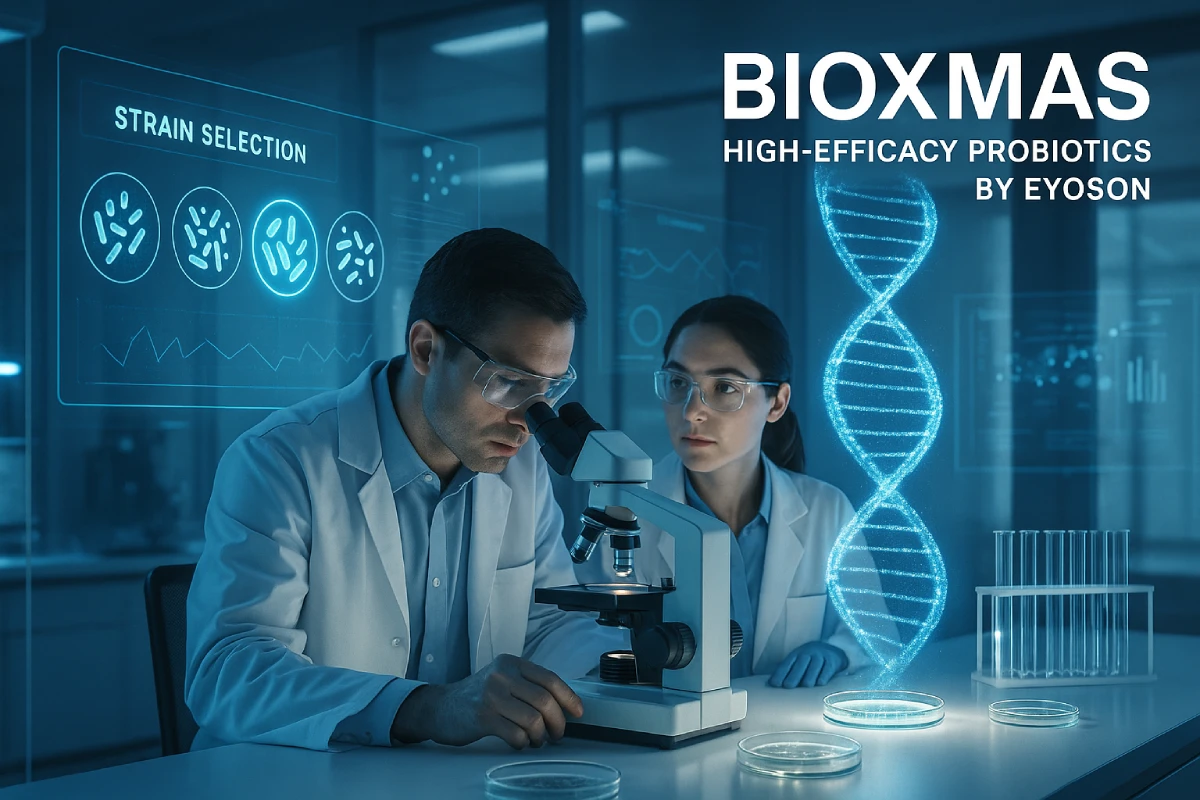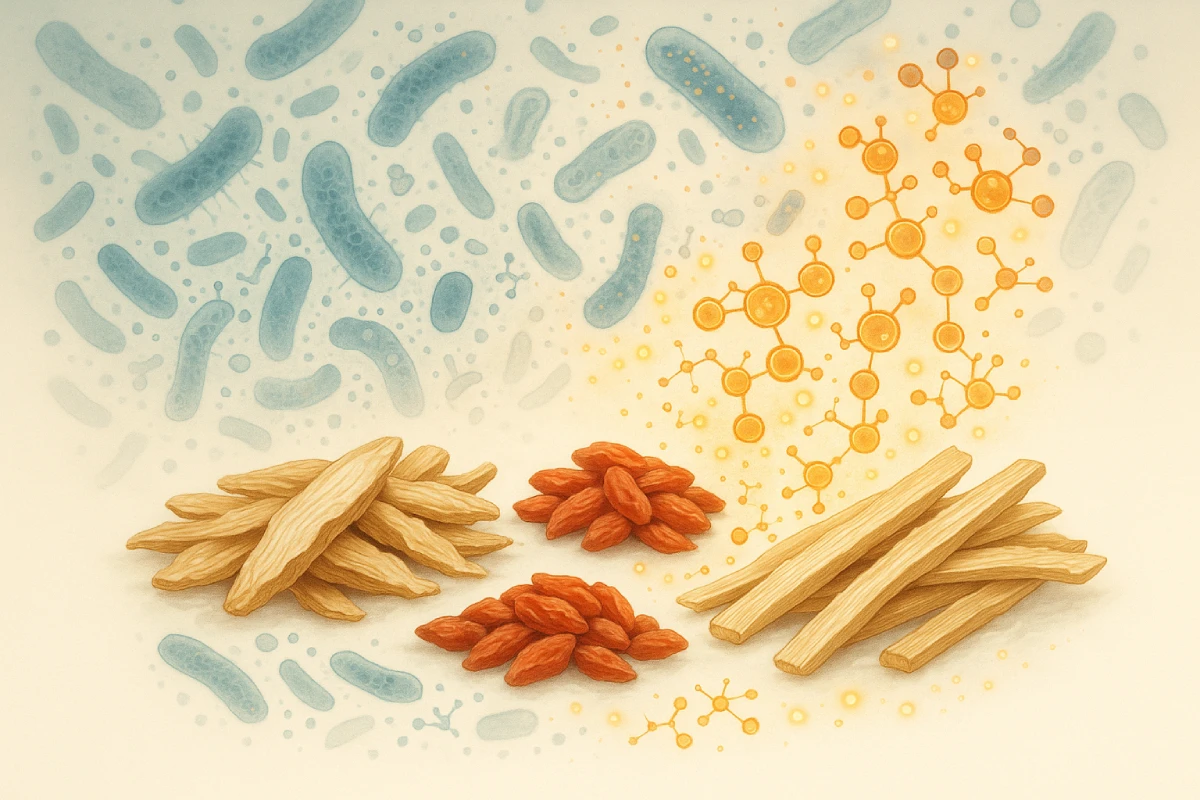1. Functional Synergy: Redefining the Future of Nutrition
In the evolving landscape of functional nutrition, innovation is no longer defined by isolated ingredients — but by the synergy among bioactive systems. Across categories from functional foods and dietary supplements to clinical and sports nutrition, formulators are seeking multi-functional, synergistic compounds that deliver measurable efficacy and consumer trust.
One of the most compelling trends emerging from this paradigm is the combination of probiotics and peptides. Both are rooted in biological science — probiotics modulate the gut microbiota and immune responses, while bioactive peptides act on molecular targets that regulate inflammation, metabolism, and cellular repair.
When combined strategically, probiotics and peptides form a synergistic ecosystem that amplifies bioavailability, enhances gut resilience, and drives measurable health benefits. This is why leading B2B brands are moving beyond ingredient sourcing to integrated probiotic–peptide solutions, backed by science, precision fermentation, and manufacturing expertise.

2. The Science of Synergy: How Probiotics Enhance Peptide Bioactivity
The probiotic–peptide relationship extends beyond simple coexistence — it is a dynamic biochemical dialogue within the gut microenvironment.
On one side, probiotics such as Lactobacillus and Bifidobacterium species secrete specific proteolytic enzymes that hydrolyze dietary or supplemental proteins into smaller peptide fragments. These bioactive peptides exhibit antioxidant, immunomodulatory, and anti-inflammatory functions [1].
On the other side, peptides provide readily assimilable nitrogen and amino acids that support probiotic growth, metabolism, and postbiotic generation — effectively acting as “prebiotic-like” substrates. This dual mechanism leads to enhanced gut barrier integrity, neurotransmitter modulation, and systemic anti-inflammatory effects [2].
At a physiological level, peptide–probiotic synergy influences the gut–brain axis, metabolic regulation, and immune homeostasis, offering multi-dimensional support relevant to diverse application markets — from sports performance to stress resilience and clinical recovery.
3. BIOXMAS by EYOSON: A Pioneer in High-Performance Probiotics
Behind this next-generation synergy stands BIOXMAS®, the probiotic innovation division of EYOSON® — China’s leading full-category peptide manufacturer and functional ingredient developer.
BIOXMAS focuses on strain screening, efficacy validation, high-activity fermentation, and multi-scenario application. With cutting-edge biotechnology and a translational research platform, it leads the global pursuit of “high-efficacy probiotics.”
Key BIOXMAS innovations include:
- The World’s First Full-Ecosystem Probiotic Bank – integrating strains from human, plant, animal, and marine origins.
- The First Marine Probiotic Library – harnessing oceanic biodiversity for unique bioactivities.
- Over 10,000 Strain Resources – offering unmatched flexibility for formulation design and co-fermentation programs.
Through collaboration with EYOSON’s advanced peptide division, BIOXMAS has built a microbiome–peptide co-fermentation platform that bridges microbiology, enzymology, and industrial-scale peptide synthesis. This synergy enables co-development of functional blends that meet both scientific rigor and industrial scalability.
4. From Science to Application: Proven Probiotic–Peptide Success Stories
Scientific potential is meaningful only when translated into functional applications. BIOXMAS and EYOSON have co-developed several validated probiotic–peptide systems that exemplify the practical and commercial power of synergy.
Case 1: Gut–Brain Axis Formula for Cognitive Support
Composition: Lactobacillus plantarum BX01 (BIOXMAS) + Soy Peptide (EYOSON)
Mechanism: This synbiotic formula improves serotonin synthesis through gut–brain signaling while reducing oxidative stress.
Results: Clinical pilot data showed a significant rise in serum 5-HT and decreased fatigue-related cytokines, supporting mood balance and sleep quality.
Applications: Functional beverages and stress-reduction nutraceuticals.
Case 2: Postbiotic Peptide Blend for Sports Recovery
Composition: Bacillus coagulans BX09 + Collagen Tripeptide
Mechanism: Enhances amino acid absorption and attenuates inflammation post-exercise.
Results: Reduced C-reactive protein and improved muscle recovery markers in active subjects.
Applications: Sports nutrition, performance powders, and recovery beverages.
Case 3: Hypoallergenic Nutrition for Clinical Applications
Composition: Lactobacillus rhamnosus BX05 + Rice Peptide
Mechanism: Downregulates allergen-responsive proteins and modulates immune tolerance in vitro.
Results: Demonstrated reduced allergenic potential and improved digestibility, ideal for infant and medical nutrition formulas.
These successful cases reflect how BIOXMAS probiotics and EYOSON peptides deliver validated results — moving beyond ingredient sales to evidence-based, co-developed solutions for functional nutrition brands worldwide.
5. Co-Fermentation Technology: Unlocking Bioactive Potential
At the technological core of this synergy lies co-fermentation — the process where probiotics and peptides are cultivated together under controlled enzymatic and microbial environments.
BIOXMAS and EYOSON have engineered a proprietary co-fermentation platform that integrates:
- Targeted enzyme hydrolysis
- Microbial selection for peptide activation
- Real-time metabolic optimization through AI monitoring
This approach increases short-chain peptide ratios, enhances flavor stability, and improves nutrient bioavailability — while maintaining commercial scalability.
Unlike traditional sequential fermentation, co-fermentation allows interactive metabolic enhancement, producing postbiotic peptides with superior stability and functional density [3].
For B2B partners, this translates into:
- Consistent product quality
- Reduced development timelines
- Improved regulatory compliance through verified functionality
6. Market Insights: B2B Demand for Synbiotic Formulations
Market data indicates that synbiotic formulations — combining probiotics, prebiotics, and peptides — are among the fastest-growing categories in functional nutrition.
According to Grand View Research (2024), the global synbiotic market is projected to grow at a CAGR of 8.7% through 2030, driven by consumer demand for integrated gut and immune solutions [4].
For B2B brands, this trend opens a unique window:
- Consumers increasingly demand “science-backed multi-benefit formulas” instead of single-ingredient products.
- Functional food and beverage manufacturers can use probiotic–peptide systems to differentiate on efficacy and storytelling.
- Clinical and medical nutrition brands can utilize bioavailable, hypoallergenic peptide bases with validated microbial symbiosis.
In short, the path forward lies in ingredient partnerships that deliver functional harmony — not just supply agreements.
7. Why Partner with EYOSON & BIOXMAS
Working with EYOSON and BIOXMAS means leveraging end-to-end expertise — from strain to solution.
EYOSON®:
- Full-category peptide manufacturer with patented enzymatic and fermentation technologies.
- Recognized industry standard setter and top-tier small peptide patent holder in China.
- Expertise across soy, rice, oyster, collagen, and marine peptide categories.
BIOXMAS®:
- Probiotic technology innovator, focusing on strain efficacy and industrial fermentation.
- Proprietary high-activity fermentation process ensuring viability and bioefficacy.
- Houses China’s first marine probiotic library and a 10,000+ strain ecosystem bank.
Together, EYOSON and BIOXMAS offer:
- Integrated co-development: from concept to clinical validation.
- Custom co-fermentation programs: tailored for gut, metabolic, immune, or beauty-from-within applications.
- Regulatory-ready documentation and scientific support for international B2B brands.
This partnership model transforms suppliers into innovation collaborators — empowering clients to build truly differentiated functional products.
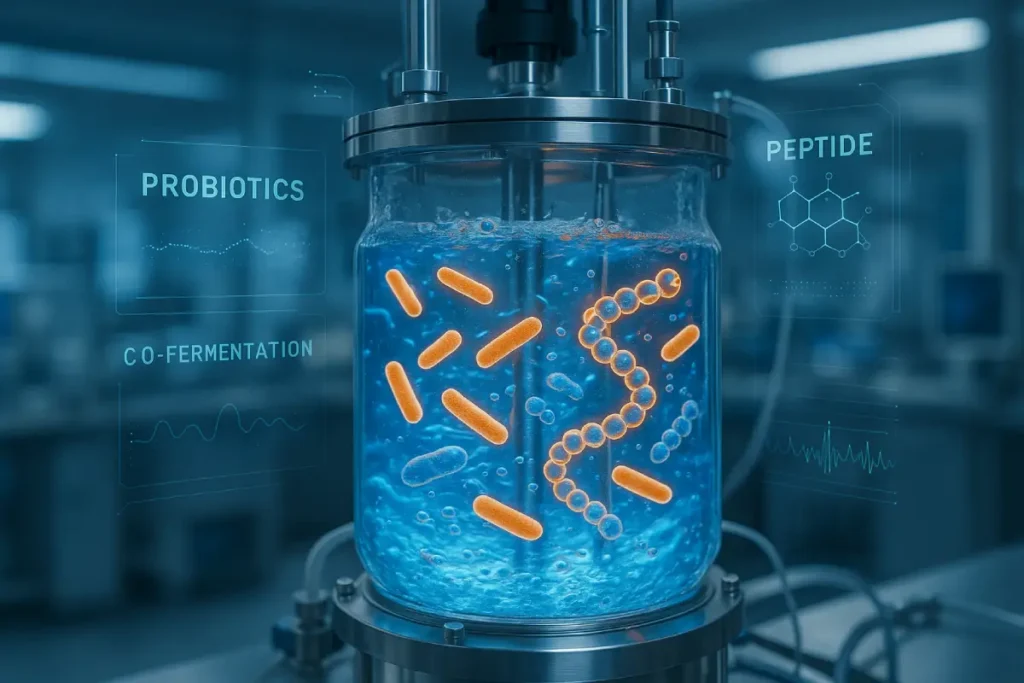
8. Future Outlook: Synbiotic Nutrition 3.0
The next evolution of nutrition is not “ingredient-based,” but ecosystem-based. As postbiotic science and microbiome analytics advance, the probiotic–peptide interface will evolve into Synbiotic Nutrition 3.0 — a model characterized by:
- AI-assisted strain–peptide matching for targeted health outcomes
- Integration of postbiotic peptides and exopolysaccharides
- Metabolomic fingerprinting to personalize functional food formulations
BIOXMAS and EYOSON are committed to driving this frontier — transforming the science of synergy into a new era of evidence-backed, sustainable, and scalable nutrition solutions for global brands.
9. Partner with BIOXMAS & EYOSON to Develop Next-Generation Synbiotic Solution
The convergence of BIOXMAS probiotics and EYOSON peptides represents a fundamental shift in the functional ingredient industry — from single-function compounds to integrated bioactive ecosystems.
By uniting microbiology, peptide science, and manufacturing precision, EYOSON and BIOXMAS redefine what’s possible in B2B functional nutrition innovation.
Partner with BIOXMAS & EYOSON for Next-Generation Functional Nutrition
Leverage BIOXMAS’s high-efficacy probiotics and EYOSON’s full-category peptides to co-develop scientifically validated, high-performance synbiotic solutions tailored for your B2B products. Connect with our R&D team to accelerate innovation and bring differentiated products to market.
Contact UsFAQ
Probiotics secrete specific proteolytic enzymes that break down proteins into bioactive peptides, enhancing absorption and efficacy. Peptides provide amino acids that support probiotic growth and metabolite production, improving gut barrier integrity, immune function, and metabolic regulation [1][2].
EYOSON provides full-category peptide manufacturing, while BIOXMAS specializes in high-efficacy probiotics with over 10,000 strains. B2B brands can co-develop custom probiotic–peptide blends, leverage co-fermentation technology, and access regulatory documentation, efficacy validation, and pilot studies.
Yes. The synergy platform supports clinical nutrition, sports recovery, and immune/gut health applications. B2B partners can customize strain-peptide ratios according to functional goals and regulatory requirements.
Co-fermentation allows probiotics and peptides to interact during production, generating postbiotic peptides with higher bioactivity and stability. Benefits include consistent quality, enhanced bioavailability, reduced development time, and tailored functional properties [3].
EYOSON & BIOXMAS provide in vitro and in vivo studies, clinical pilot trials, and comprehensive technical dossiers to support regulatory submissions, labeling, and marketing purposes.
Yes. BIOXMAS strains and EYOSON peptides are manufactured under GMP and international quality standards, including strain identification, peptide purity reports, and co-fermentation process records, facilitating global market entry.
Brands can incorporate these solutions in beverages, functional foods, clinical nutrition formulas, and sports nutrition products. Custom formulation ensures targeted efficacy, taste optimization, and stability across formats.
Examples include gut–brain support with Lactobacillus plantarum BX01 + Soy Peptide, sports recovery with Bacillus coagulans BX09 + Collagen Tripeptide, and hypoallergenic nutrition with Lactobacillus rhamnosus BX05 + Rice Peptide, demonstrating practical applications for B2B brands.
Partnership provides access to 10,000+ probiotic strains and full-category peptides, custom co-fermentation platforms, scientific support for validation, and the ability to rapidly develop next-generation synbiotic products with competitive advantage.
Contact EYOSON’s R&D team via the website. Steps include consultation, strain and peptide selection, pilot batch production and testing, and scale-up for commercial launch.
- All
- Information
References
- [1] Hayes, M., & Mora, L. (2023). Bioactive peptides and their interactions with the gut microbiota: A review. Food & Function, 14(2), 567–579.
- [2] Markowiak, P., & Śliżewska, K. (2022). Effects of probiotics, prebiotics, and synbiotics on human health. Nutrients, 14(3), 571.
- [3] Chen, H., Zhao, X., & Guo, J. (2021). Advances in co-fermentation technologies for bioactive peptide production. Journal of Functional Foods, 85, 104652.
- [4] Grand View Research. (2024). Synbiotic Ingredients Market Size, Share & Trends Analysis Report.
